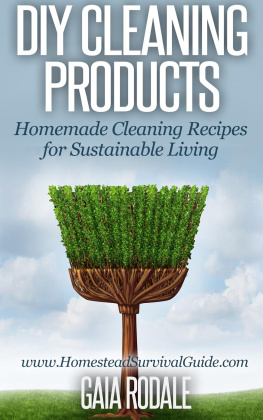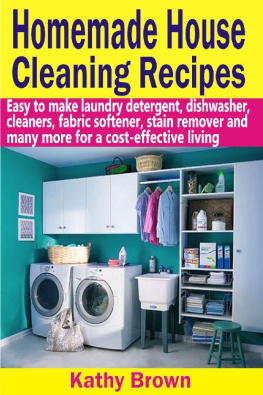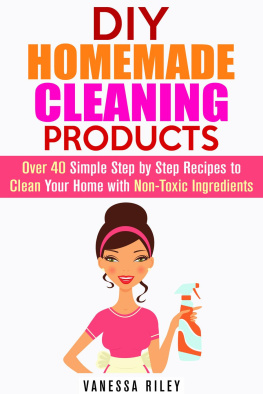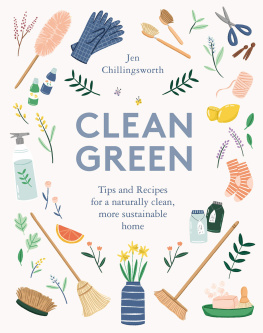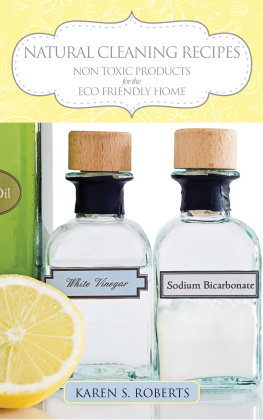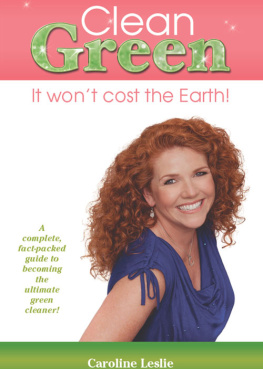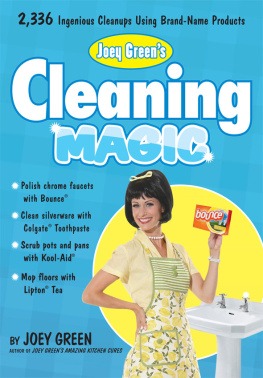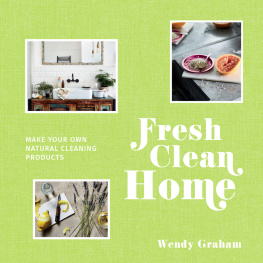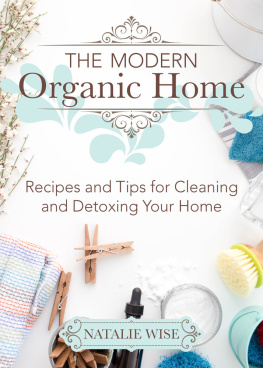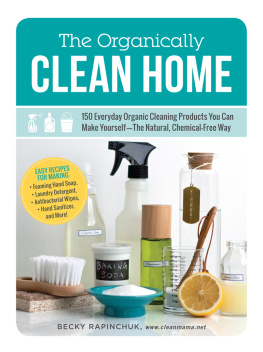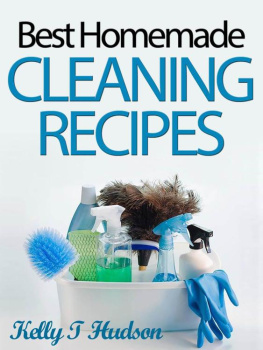Copyright 2017 by Trusted Media Brands, Inc.
All rights reserved. Unauthorized reproduction, in any manner, is prohibited.
Readers Digest is a registered trademark of Trusted Media Brands, Inc.
ISBN 978-1-62145-380-2
ISBN 978-1-62145-381-9 (ebook)
Library of Congress catalogued the original edition of this book as follows:
Homemade : a surprisingly easy guide to making hundreds of everyday products you would otherwise buy. -- 1st ed. p. cm.
Includes index.
ISBN 0-7621-0753-7 (hardcover)
ISBN 978-0-7621-0904-3 (paperback)
1. Home economics. 2. Recipes. I. Earnest, Don, 1938- II.
Readers Digest Association.
TX158.H625 2006 640--dc22
2006026506
We are committed to both the quality of our products and the service we provide to our customers. We value your comments, so please feel free to contact us.
Readers Digest Adult Trade Books
44 South Broadway
White Plains, NY 10601
For more Readers Digest products and information, visit our website:
www.rd.com (in the United States) www.readersdigest.ca (in Canada)
Note to Readers
The information in this book has been carefully researched, and all efforts have been made to ensure its accuracy and safety. Trusted Media Brands, Inc., and the individual contributing consultant-writers do not assume any responsibility for any injuries suffered or damages or losses incurred as a result of following the instructions in this book. Before taking any action based on information in this book, study the information carefully and make sure that you understand it fully. Observe all warnings. Test any new or unusual repair or cleaning method before applying it broadly, or on a highly visible area or a valuable item. The mention of any brand or product in this book does not imply an endorsement. All prices and product names mentioned are subject to change and should be considered general examples rather than specific recommendations.
The Magic of Homemade
Many of us have a similar shopping ritual. Once a week we go to the supermarket, grab a cart, and load up with a box of this and a bottle or a carton of that. If you also add visits to your local convenience store for extra supplies, it s a whole lot of shoppingand spendingweek after week after week.
But what do we get with all these packaged products? We get reliability and convenience, and we get choicessupermarket aisles are packed with mind-boggling variations of the same product. But thats not all we get. Many everyday food items are filled with unwanted chemicals and preservatives, and goods come with wasteful packaging. You also get to see your name-brand products on TVbut its your money that pays for all those advertisements.
All of this is modern life, but when a window cleaner comes with citrus orange or mountain berry varieties, or a kitchen bench cleaner is produced in five different natural fragrances to try and get our attention, consumerism seems to be getting out of control.
You do, however, have options. You can make your own alternative versions of hundreds of items that you buy at the supermarket, and they will be cheaper, healthier and effective. That is exactly what Homemade is all about. In this book, youll find more than 700 recipes for substitutes for the most common items bought in stores. And they are not just for food items. Beauty products, toiletries, pet supplies, cleaning and garden products and even everyday medicines can be made at home easily, quickly and effectively.
You will not only save a lot of money, but also have great fun and get a real sense of pride from making these easy and clever recipes. Youll love the quality, youll love the savings and, most of all, youll love the feeling of accomplishment.
The Editors
Readers Digest
The Rewards of Making It Yourself
There are many good reasons and real, tangible benefits to making common household products yourself. In many cases, youll find that the quality of the homemade product is superior to the equivalent store-bought item. Youll not only save money, but when you make something yourself, you know exactly what goes into it. Youll know for sure that it contains no questionable extenders, stabilizers or other artificial ingredients, and you can also adjust the recipe to meet your own needs or tastes. Not only that, when you make something yourself, you create a lot less waste, so you can feel good about doing your bit to help the environment. And ultimately, you gain a reward that cant be duplicated by anything that you buya great feeling of personal satisfaction that you actually made the product yourself.
Saving Money
Dont overlook the savings when you make something yourself, because the more you make, the more you save! Every time you buy a bottle of tomato sauce, a cream for an itch or liver treats for your dog, only a small percentage of the money goes to cover the cost of making the product. Indeed, if you leave out the cost of manufacturing, the ingredients in most products account for only a tiny fraction of the total. The rest covers the costs of advertising, packaging, shipping, overheads and the retailers bottom line.
Healthier and More Natural
A commercial product may need to survive weeks or months from the time it is manufactured until it is finally picked up and used. Depending on the product, it could be pumped full of stabilizers, plasticizers, extenders, fillers and other chemicals. Some additives are there to facilitate the manufacturing process, making the product move faster, release from a mold easier or create less interference to the smooth flow of production. Other artificial ingredients are added to help the item withstand heat and cold and to be less likely to clump, precipitate or adhere to packaging. Still other chemicals are used to cut the cost of using natural ingredients. Why use expensive, perishable, real strawberries when you can add a few pinches of a chemical compound that simulates their smell and taste? Most things that you make yourself are likely to be more natural and healthy for you than manufactured productswhether its a food, a beauty product or a cleaning compound. And in the case of food, its going to taste a lot fresher.
Suit Your Own Needs
Another great advantage of making products yourself is that you can customize them to be just the way you want them. If you like your moisturizer to be fresh smelling and restorative without being greasy and overwhelmingly perfumy, it can be. If you like your chocolate cookies to be extra chocolatey, they can be. If you want your spaghetti sauce tangier, your soup thicker, your mustard spicier, or if the doctor told you to cut back on the salt or sugar, you can. Nearly all the recipes in this book are flexible and can be adjusted to suit you. Experiment until you get a product just the way you like it.
Make Less Waste
When making your own staples, youll reduce the amount of waste and rubbish you produce. You wont be throwing away packaging and youll be reusing jars, bottles and other containers. Youll also cut waste by making things in batches that you use up without throwing anything out if it goes bad. For cleaning, laundering and polishing, you will also be using compounds that are much gentler and less damaging to surfaces and fabricsand to drains. So when you make it yourself, youll be doing your bit for the environment.
Next page

